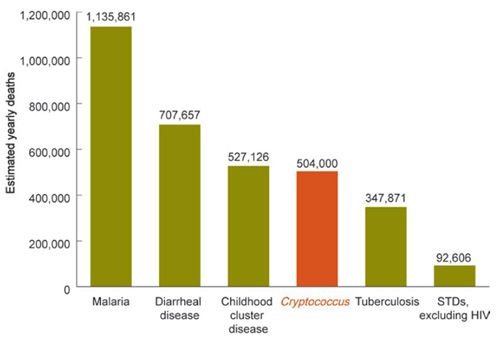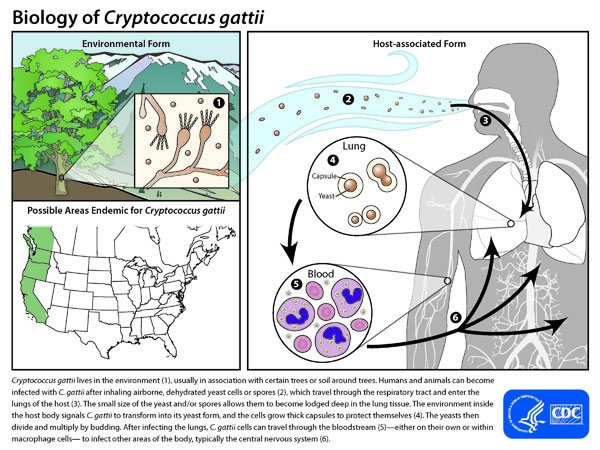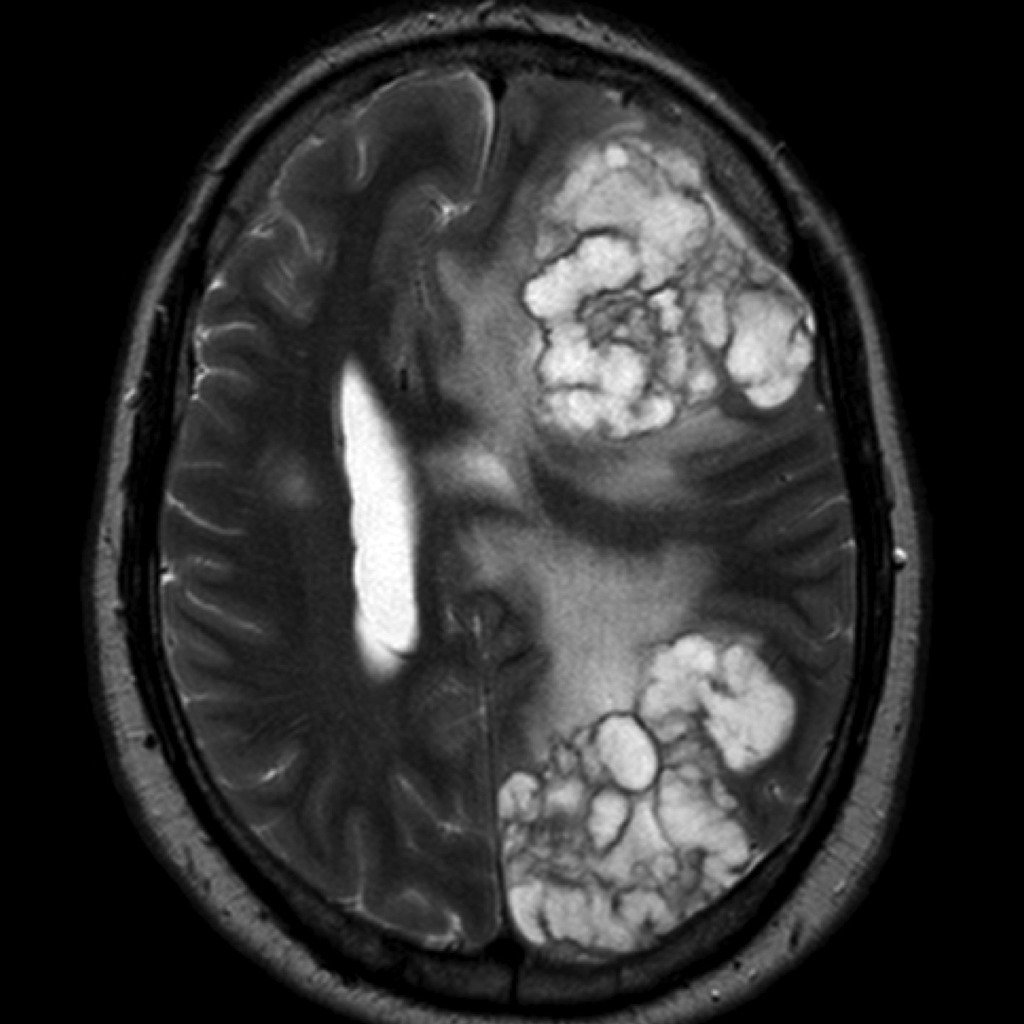Cryptococcosis is a heavily lethal fungal infection. Mostly caused by 2 species Cryptococcus neoformans another less common species that can also cause disease in humans, Cryptococcus gattii.

Image source : Avert.org
How common is cryptococcosis and is it common in US?
C. neoformans infections are very rare among people who have healthy immune systems. C. neoformans is a major cause of illness in people living with HIV/AIDS, with an estimated 1 million cases of cryptococcal meningitis occurring worldwide each year.
Cryptococcus in US:
Before the advent of ART(Anti retro viral therapy) for HIV cryptococcosis was common among HIV/AIDS patients in US but after ART and early detection of cryptococcosis the incident of the disease has gone down by about 90%. But still it’s a problem for patients with HIV/AIDS in US.
Based on studies from the studies conducted in 2000 in US the annual incident of cryptococcosis among persons with AIDS was between 2 and 7 cases per 1,000, and the overall incidence was 0.4 to 1.3 cases per 100,000 population; the case-fatality ratio was approximately 12%.
Cryptococcus in World:
An estimated 1 million cases of cryptococcal meningitis among occur among people with HIV/AIDS worldwide each year, resulting in nearly 625,000 deaths. These cases are mostly due to HIV/AIDS and more concentrated in developing or poor countries. Cryptococcal meningitis leading causes of death in HIV/AIDS patients in sub-Saharan Africa, where it may kill more people each year than tuberculosis.

Image source: CDC

Image source: CDC
How humans gets cryptococcosis?
This infection is most often seen in people with a weakened immune system.
• Are infected with HIV
• Take high doses of corticosteroid medications
• Are on chemotherapy drugs for cancer
• Have Hodgkin disease
How is Cryptococcus spread?
This fungus lives in soil, on decaying wood, in tree hollows, or in bird droppings. Its not contagious. Humans get it by inhaling the fungus from environment. Those who inhale it may not get infection as they may have strong immune system but those who get infected by it may have weak immune system so they are at risk.

Image source: CDC
The exact mechanism how Cryptococcus initially causes disease is still not clearly understood by medical professionals but its evident that it spreads by small forms of yeast cells and basidiospores and one consensus among medical health professionals is that mostly the weak immune system causes it.
What is cryptococcal meningitis?
It’s a cryptococcal infection of brain after it spreads from the lungs. The mechanism how the fungus crosses brain barrier is still not clear but the hypothesis is that it first infects the phagocytes cells of blood then it lodges into brain. The infection is clinically known as chronic meningoencephalitis.

Case courtesy of MD Ciro Menna Barreto Duarte, Radiopaedia.org. From the case rID: 46702
What signs and symptoms do Cryptococcus infection produce?
In lungs
Pneumonia-like illness
• Cough
• Shortness of breath
• Chest pain
• Fever
HIV-infected patients with pulmonary cryptococcosis may present with the following:
• Fever (84%)
• Cough (63%)
• Dyspnea (50%)
• Headache (41%)
• Weight loss (47%)
In the brain (cryptococcal meningitis):
• Headache
• Fever
• Neck pain
• Nausea and vomiting
• Sensitivity to light
• Confusion or changes in behavior
How Is Cryptococcal Meningitis Diagnosed by doctors?
Clinically doctor will examine for above signs and symptoms.
For definite diagnosis the work up includes following lab test
• Biopsy with fungal stains and cultures
• Fungal culture, cryptococcal serology, and cryptococcal antigen testing from blood
• India ink smear, fungal culture, and cryptococcal antigen testing from CSF(Cerebrospinal fluid) a Spinal tap may be required
• Urine and sputum cultures
• AIDS patients with cryptococcal pneumonia, culture of bronchoalveolar lavage washings
• Radiology: MRI brain and chest xray if doctor ask for
How treatment is done in case of cryptococcal infection?
For Pulmonary(Lung) Cryptococcal infection: In Immuno competent person lesion will get resolve but in immuno compromised person we give fluconazole
(200–400 mg/day for 3–6 months)
For Cryptococcal meningitis infection: For CNS(brain) involvement in a patient without AIDS or obvious immune impairment, most authorities recommend initial therapy with Amphotericin B (0.5–1 mg/kg daily) during an induction phase, which is followed by prolonged therapy with fluconazole (400 mg/daily) during a consolidation phase. For cryptococcal meningoencephalitis without a concomitant immunosuppressive condition, the recommended regimen is Amphotericin B (0.5–1 mg/kg) plus flucytosine (100 mg/kg) daily for 6–10 weeks. These are all antifungals+ we may have to give ART(Anti retro viral) for HIV/AIDS.
So how we can prevent cryptococcal infection?
Most cases of C. neoformans infection occur in people who have weakened immune systems these are
• Have advanced HIV/AIDS,
• Have had an organ transplant, or
• Are taking corticosteroids or other medications that weak your immune system
A targeted screening is required in HIV/AIDS patient a blood test is done for them.
References
Harrison’s principles of Internal medicine 18th edition
https://www.cdc.gov/fungal/diseases/cryptococcosis-neoformans
Stay safe and take care. If you like my presentation do upvote and follow me @meetsin. Thanks for your time
